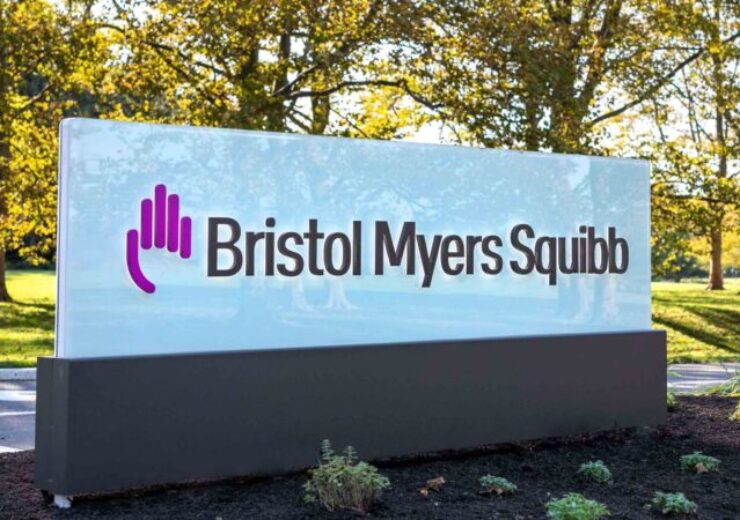For the second cell therapy of BMS, Cellares will optimise, automate, and tech-transfer the additional CAR-T cell therapy process onto its automated manufacturing the Cell Shuttle platform

Bristol Myers Squibb’s building signage. (Credit: Bristol-Myers Squibb Company)
US-based Cellares and Bristol Myers Squibb (BMS) have expanded their manufacturing agreement to enter a second proof-of-concept tech transfer process to produce a CAR-T cell therapy.
The latest agreement is part of the Cellares Technology Adoption Partnership (TAP) programme, which BMS joined in August this year.
The TAP programme is a fast and low-risk option for cell therapy makers to utilise the company’s automated manufacturing technology for products in their pipeline.
For the second cell therapy of BMS, Cellares will optimise, automate, and tech-transfer the additional CAR-T cell therapy process onto its automated manufacturing Cell Shuttle platform.
Cell Shuttle is said to be a cost-efficient, reliable, fully automated, and highly scalable manufacturing solution for cell therapies.
Through the collaboration, Bristol Myers Squibb will have more opportunities to assess this scalable, dependable, and reasonably priced platform for large-scale manufacturing.
Using this programme, BMS will evaluate the Cell Shuttle as an automated manufacturing process and generate comparative data to validate the platform as an effective cell therapy manufacturing solution.
Cellares CEO Fabian Gerlinghaus said: “We’re excited to expand our relationship with Bristol Myers Squibb even further beyond the Series C investment and the first TAP program for cell therapies.
“The optimisation and automation of this additional CAR-T cell therapy process through our TAP programme expands on our first partnership with BMS and helps our mission to accelerate access to life-saving cell therapies for patients.”
Several cell treatment firms are looking to use the Cell Shuttle as a clinical and commercial-stage GMP production solution.
Cellares, an integrated development and manufacturing organisation (IDMO), said there is rapid growth and substantial demand for its TAP programme.
About 90% of cell treatment modalities are supported by the company’s adaptable manufacturing technology, which also supports both autologous and allogeneic cell therapy procedures.
According to IDMO, it only takes six months to automate manual procedures and tech-transfer them onto the Cell Shuttle platform through the TAP programme.
